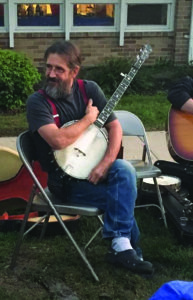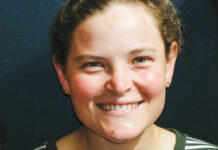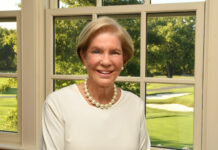
By Bob Jacobson
Pikesville native Brian Berele, 64, majored in history at William & Mary college in Virginia. Though his passion for history endured, life had other plans.
After college, he apprenticed with a wooden yacht builder in Virginia and thought he would pursue that field, until he was laid off. He found work elsewhere as a carpenter’s helper, then became a carpenter. Returning to Baltimore, he was hired by James Cox & Sons, where he worked on the award-winning historical preservation of B’nai Israel on Lloyd Street.
Since 1987, Berele has worked at Woodberry Construction, which he purchased with two co-workers in 1998. When asked about the company name, Berele reverts to historian, explaining that most of Baltimore’s plasterers once lived in the Woodberry neighborhood, near today’s TV Hill. Woodberry’s niche is remodeling commercial interiors. Their customers have included BGE/Constellation Energy, the Baltimore Ravens, St. Paul Plaza and T. Rowe Price, where they recently spent two years remodeling conference rooms. Before COVID-19 hit, they kept 13 employees busy.
Now, with so many formerly office-based staff working from home, “we’re just keeping our heads above water,” said Berele.
Berele spends a lot of time these days reading and playing the banjo and is involved with Hinenu: The Baltimore Justice Shtiebl.
He is a passionate devotee of old-time music, explaining that this style is “Appalachian fiddle music played for dancing.”
Berele came to old-time music not from bluegrass, which he says didn’t do anything for him, but from being a Grateful Dead fan. Learning that Grateful Dead lead guitarist Jerry Garcia also played banjo, Berele began to investigate old-time music.
“When I heard it, this was it,” he recalled. “Old-time is the true kernel of American music.”
He relishes the banjo player’s secondary role. “Backing up the fiddle, keeping the time, I’m like the drummer,” he explained.
One of the chief ways Berele has indulged his interest in old-time music is through jam sessions, including hosting them monthly at his home in Pikesville. Even after the onset of the pandemic, players gathered there, socially distanced, to play outdoors. Those sessions have ceased for now, until the weather gets warmer.
When asked if he has done a paid gig before, Berele notes one performance. At Congregation Beit Tikvah, where he was president for two years and an Executive Committee member for eight, he once played in exchange for a meal in the ad hoc trio, The Reconstructionist Ramblers, along with congregants Ed Schaffer on fiddle and Pat O’Neal on guitar.
According to Berele, there are a large number of Jewish players in old-time music, and it intersects with klezmer music. One morning in 1977, for example, after having a bacon-laden breakfast rejected by his (Jewish) student Henry Sapoznik, old-time music master Tommy Jarrell asked the young man, “Hank, don’t your people got none of your own music?” This jarring question sent Sapoznik on a search that culminated with his leading the late-20th-century revival of klezmer.
Outside of music, Berele and his wife, Lauren Siegel, who used to work with Health Care for the Homeless, attend Hinenu. Berele learned about the congregation three years ago.
“There were all these super-energetic, socially active young people,” Berele said. “It spoke to our values.”
Bob Jacobson is a freelance writer.







